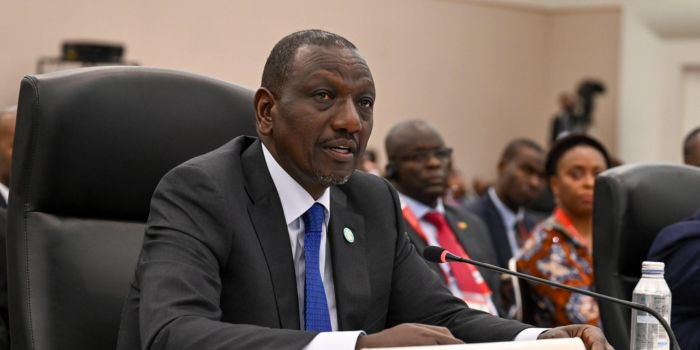Kenya has once again been highlighted for weak governance, after being ranked among the lowest-performing countries worldwide in a new global index.
According to the Chandler Good Government Index (CGGI) 2025, Kenya sits at position 98 out of 120 countries, placing it in the bottom quarter of the global ranking of effective governance. The CGGI is one of the most comprehensive measures of how governments function, focusing not just on policies but also on real outcomes that affect citizens.
The index evaluates 35 key indicators spread across seven pillars that assess how well governments deliver services, manage resources, and prepare for the future. At the center of the study is a crucial question: Is a government structured to “help people rise”? For countries like Kenya, which are still struggling with development challenges, this aspect is especially important.
Kenya’s Weak Spots in the Index
Kenya’s poor overall score is largely tied to several areas of weakness revealed by the CGGI pillars. The Leadership and Foresight pillar was the worst-performing area, where Kenya ranked 111th globally.
This section of the index measures how governments demonstrate ethical leadership, long-term planning, the ability to adapt to new challenges, and the capacity to encourage innovation. Kenya’s low score here suggests shortcomings in political leadership, planning, and vision.
Another troubling area is Strong Institutions, where the country ranked 102nd. This pillar looks at the operational strength of the public sector, including coordination across government departments, data-driven policymaking, and the professionalism of bureaucracy.
Kenya’s low score reflects widespread challenges with weak institutions, inefficiency, and poor accountability in public service.
The Marketplace pillar, which focuses on how well a country attracts investments, protects property rights, develops infrastructure, and maintains a stable regulatory framework, saw Kenya ranked 101st. Analysts say this score highlights persistent challenges in creating a competitive business environment and ensuring investor confidence.
On the other hand, the Outcomes for Citizens pillar — which examines access to education, healthcare, safety, income equality, and environmental sustainability — placed Kenya at 95th. This shows that despite progress in some sectors, many Kenyans still struggle to access essential services, while inequality and insecurity remain widespread concerns.
Kenya’s performance in Legal and Regulatory Governance was similarly weak, at 96th, showing gaps in the enforcement of laws, judicial efficiency, and transparency. However, the country did relatively better in Global Influence and Reputation, where it ranked 93rd, largely due to its regional diplomatic role and participation in international platforms.
Interestingly, Kenya’s best score came in Financial Stewardship, where it ranked 85th. This indicates that compared to many other African nations, Kenya has been more effective in areas like budget management, debt handling, and public spending. However, experts caution that even this progress is fragile, given the growing public debt and controversies around government expenditure.
Africa’s Regional Struggles
The CGGI report also highlighted Africa as the region with the lowest overall governance performance globally. While some African countries are making strides, the general trend shows stagnation or decline.
Of the 28 African countries ranked, only Tanzania and Rwanda managed to improve their positions between 2021 and 2025. The rest, including Kenya, either slipped backwards or showed no progress.
In Africa, Mauritius remains the leader, ranked 51st worldwide. It is followed by Rwanda (63rd), Botswana (66th), Morocco (75th), and South Africa (77th). Other notable African performers include Tanzania (78th), Egypt (81st), Senegal (83rd), Ghana (89th), and Algeria (90th).
Countries such as Côte d’Ivoire (93rd), Namibia (94th), Benin (95th), and Tunisia (96th) all performed better than Kenya, which trails at 98th, highlighting the governance difficulties Kenya continues to face.
Global Governance Leaders
Globally, Singapore retained its top spot as the best-governed nation in 2025, strengthening its lead over second-placed Denmark. The Asian nation scored a perfect 1.000 in the Telecommunication Infrastructure Index and continues to lead in Leadership & Foresight, Strong Institutions, an Attractive Marketplace, and Helping People Rise. Singapore’s success also highlights its strength in digital governance, where it has built a global reputation as a pioneer.
Behind Singapore and Denmark, the top 10 performers include Norway, Finland, Sweden, Switzerland, the Netherlands, Germany, the United Arab Emirates (UAE), and Luxembourg, in that order. These nations consistently rank high due to their strong institutions, transparent governance, and effective delivery of services.
What the Report Means for Kenya
Kenya’s poor performance in the 2025 CGGI is a strong reminder of the governance issues that continue to plague the country. The results highlight urgent areas requiring reform, including political leadership, institutional accountability, service delivery, and a more stable investment climate.
For Kenya to climb the rankings, experts say the government must focus on building strong institutions, tackling corruption, promoting inclusive development, and adopting long-term planning rather than short-term political gains.
Without these improvements, Kenya risks falling further behind its peers, even as neighboring countries like Rwanda and Tanzania continue to make steady progress.
Join Government Official WhatsApp Channel To Stay Updated On time
https://whatsapp.com/channel/0029VaWT5gSGufImU8R0DO30


